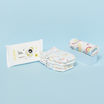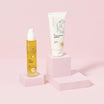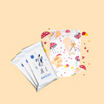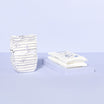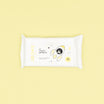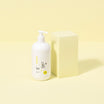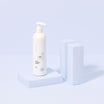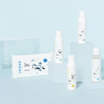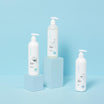Your Cart is Empty
Expert Opinion: How to avoid breast / pacifier confusion

Breast / pacifier confusion is a bit of a pet peeve of breastfeeding moms, and is also the subject of much talk on forums and social networks. It is evoked when a baby seems to have lost his sucking cues after having received a pacifier, a bottle, or having suckled on a silicone breast tip.
Is this a myth or a reality? Can you avoid it and what could you do if the child is already developing this habit? Carole Hervé, IBCLC lactation consultant answers this and more!
A flow preference: the main reason for breast / pacifier confusion
Babies usually prefer a steady flow of milk to ensure they get enough breast milk. Some babies are very agitated or impatient when being fed. Perhaps the milk isnt quite flowing the way they'd like it to, especially because their mother's lactation is moderate.
In this setting, it can be tempting to offer your baby a bottle of infant formula. The baby feels that the milk flows easily when given a bottle, when despite his efforts, he receives a lot less when being breast fed. Naturally, he develops a flow preference, which will make him turn away from the breast.
Obviously, there are many other reasons the baby gets angry at the breast. As surprising as it may sound, it can also occur when the flow of milk is too great. As Carole reminds us:
In case of doubt, it is always good to refer it to a professional who will know how to accurately assess the situation.
What if my baby is looking for a flow that does not seem to fit at the breast?
Sometimes it is good to spend a few days over-stimulating lactation when the baby has been observed to wet less than 6 diapers per 24h (the first obvious sign that the milk transfer is inadequate).
Several options are available to you:
- try and offer the breast more often,
- remove any pacifier that filled the baby's need for sucking to make him sleep or make him wait a little,
- reintroduce night feeds,
- alternate the breasts during feeding and compress the breast as soon as the flow slows down.
A few days of a more sustained pace usually succeed in increasing lactation. You can also use a breast pump to speed up the process.
How do I know if my child has developed breast / pacifier confusion?
The baby no longer knows what to do with the breast, he chews it, pinches it, does not move his tongue forward to bring in the milk and gets angry very quickly. He cries on the breast, seems to push it away, screams and arches back.
More and more people think that a baby who behaves in this way has never actually been able to suck properly. Some babies may even end up refusing the breast.
Warning
Many babies behave this way because they feel pain (for example, a canker sore, or inflammation from an ear infection). If in doubt, see a doctor and a lactation specialist to assess the situation.
What alternatives should you use if you fear that the baby will get used to the bottle?
There are many situations where you give your milk other than the breast. For example when a mother returns to work, or has to be absent for an evening ...
In this case, it is quite possible for the mother to pump her milk, and to give it to her baby in a container and not a feeding bottle:
- with a spoon, with a syringe
- with an alternative to the pacifier called Calma®
- with a Lactation Aid Device (from birth)
- with a spouted cup (from 4 months)
- with glass (from 6 months).
How can I help my baby to return to the breast if he seems to be unable to breastfeed?
With patience and perseverance, and often also support, you can re-educate your baby's sucking.
- Start by removing all bottles and teats.
- Offer milk in any way to your baby first and offer the breast in a quiet moment
- Trigger your ejection reflex by expressing your milk by hand or with a breast pump.
- Breastfeed your baby in a calm environment, without too many external stimuli that could distract his attention, even in the dark
- Breastfeed your child as often as possible (use the Biological Nurturing approach described by Suzanne Colson which involves inviting yourself to make yourself comfortable with your back against a chair, tilting back slightly and bringing your baby "At the right address").
- Avoid forcing your baby. Repeat often without waiting for your baby to be hungry
Keep in mind that the more your baby drinks your milk, the more you will produce, and the easier it will be to breastfeed. A virtuous circle!
Get help!
In case of doubt or difficulty, lactation specialists are there to provide you with personalised solutions, depending on your story and that of your baby. Each breastfeeding is different and may require a specific approach.
Also in Joone

Christmas, a time that can make parents turn a little ‘Grinch’?
As children, w e looked forward to Christmas more than anything else in the entire year. However, once adults, it is often a different story. Especially when you're parents. The race to grab the best toys , trips stuck in traffic …. would it be all that strange if some of us tend to turn half Santa Claus half Grinch this time of year?
Read More
Worst Gifts for Babies for Christmas
The end-of-year celebrations are finally back, and with it, the huge task of buying gifts for all your loved ones! One of the most difficult presents to buy will always be for babies. After all, you need to take the parents needs into consideration as well!

The Best Christmas Gift Ideas For New Mums
Christmas is such a special time of year, especially for new mums. T here is nothing quite like celebrating the holiday season with your newborn in your arms. A healthy baby is definitely the best Christmas gift, but here's a guide if you're looking to show her a bit of extra love!
Read More


